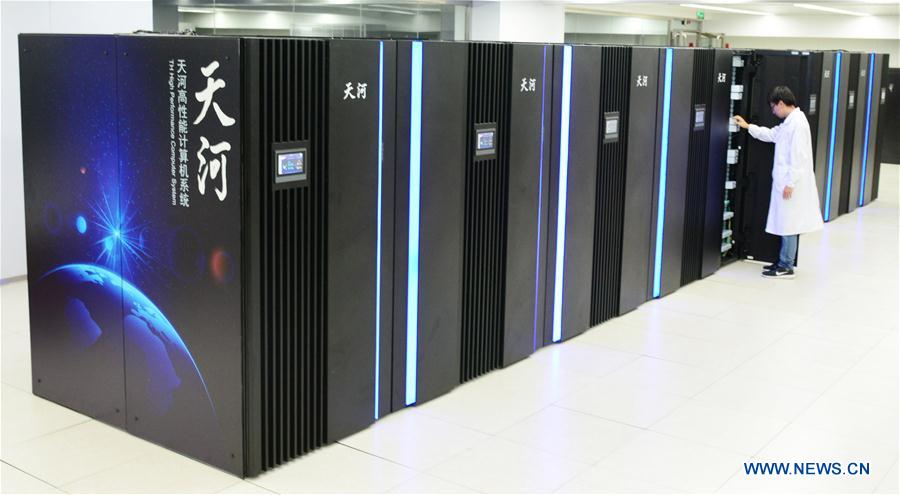China's prototype of exascale supercomputer passes tests
The research and development of the prototype of China's new-generation exascale supercomputer Tianhe-3 is complete.
The research and development of the prototype of China's new-generation exascale supercomputer Tianhe-3 is complete, the National Supercomputer Center in Tianjin announced Thursday.

Photo taken on July 26, 2018 shows the prototype of China's new-generation exascale supercomputer Tianhe-3 at the National Supercomputer Center in Tianjin, north China. The research and development of the prototype of China's new-generation exascale supercomputer Tianhe-3 is complete, the National Supercomputer Center in Tianjin announced Thursday. The final version of Tianhe-3 will be operational by 2020. [Photo/Xinhua]
Jointly developed by the National University of Defense Technology and the National Supercomputer Center in Tianjin,the prototype passed the acceptance tests by the hi-tech center of the Ministry of Science and Technology on July 22.
The final version of Tianhe-3 will be operational by 2020, and will be 200 times faster and have 100 times more storage capacity than the Tianhe-1 supercomputer, China's first petaflop supercomputer launched in 2010, according to Liu Guangming, head of the National Supercomputer Center in Tianjin.
"The new-generation exascale supercomputer is expected to become irreplaceable technology dealing with challenging problems in the fields of economy and science in China," Liu said.
The supercomputer located at the Tianjin center will be gradually open for application research, Liu added.
"A high-performance computer service platform integrating supercomputing, cloud computing, big data and artificial intelligence will be built on the basis of the Tianhe-3 supercomputer," said Meng Xiangfei, head of the center's applied research and development department.
"It will play an important role in meteorology, aviation, earthquake research, energy exploration, genetic engineering and handling of big data," Meng added.

